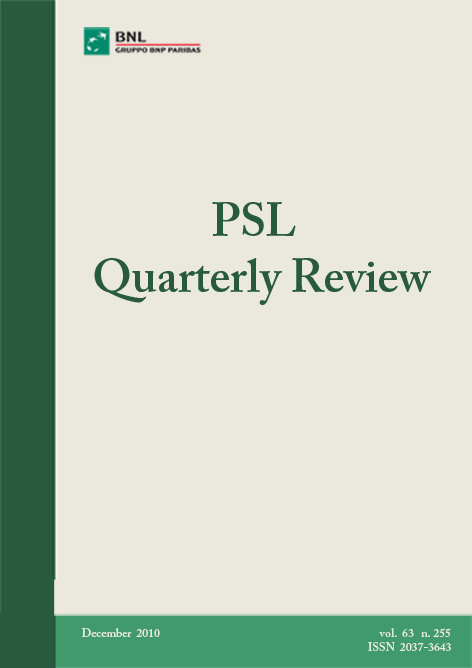Do Better Political Relations with the USA Improve A Country’s Economic Outlook?
DOI:
https://doi.org/10.13133/2037-3643/9425Keywords:
international political relations, international trade, international economic developmentAbstract
In this paper, we investigate general patterns, if any, in economic and financial conditions following improved or damaged political relations with the USA. We consider areas such as, trade, capital flows, remittances, aid, military expenditures, and education. For countries improving their diplomatic relationship with the USA, we find that in the majority of the cases the countries’ total trade, exports, and imports from the USA did not change significantly. For countries whose relations with the USA deteriorated, our results are inconclusive. As for capital inflows, US arms exports and military expenditures too, the results are generally inconclusive, although improved relations with the USA may afford countries added security and in turn reduce their military expenditures. However, the analysis of economic and military assistance trends revealed that improving relations with the USA seems to have some significant positive effects on both US economic and military assistance. Finally, the analyses of the GDP growth trends suggest that the events, both improvements and deteriorations, do not have a significant effect on the overall growth rate.
JEL Codes: F50, F51, F59
References
ASKARI, H., FORRER, J., TEEGEN, H., YANG, J. (2003), Economic Sanctions: Examining Their Philosophy and Efficacy, New York (NY): Praeger.
CIBIAN, S. (2008), “An International Relations Theory Perspective on Development Aid and Its Role in Shaping the Post-1945 World Order”, Europolis, Journal of Political Science and Theory, vol. 3, pp. 149-183.
FUKUDA-PARR, S. (2007), “Rethinking the Policy Objectives of International Development Cooperation: From Economic Growth to to Conflict Prevention”, UN WIDER Research Paper, n. 2007/32.
HUFBAUER, G., SCHOTT, J., ELLIOTT, K., OEGG, B. (2007), Economic Sanctions Reconsidered, Washington (DC): The Peterson Institute.
ILCHMAN, W., UPHOFF, N. (1976), The Political Economy of Change, New Brunswick (NJ): Transaction Publishers.
SPRENT, P., SMEETON, N.C. (2001), Applied Nonparametric Statistical Methods, Boca Raton (FL): Chapman & Hall/CRC.
Downloads
Published
How to Cite
Issue
Section
License



